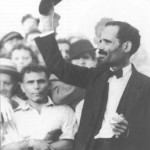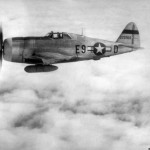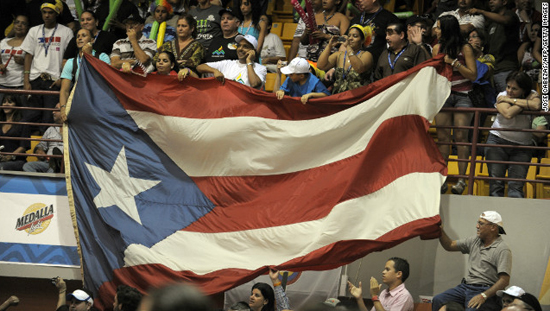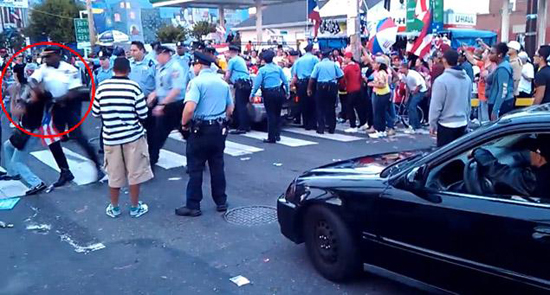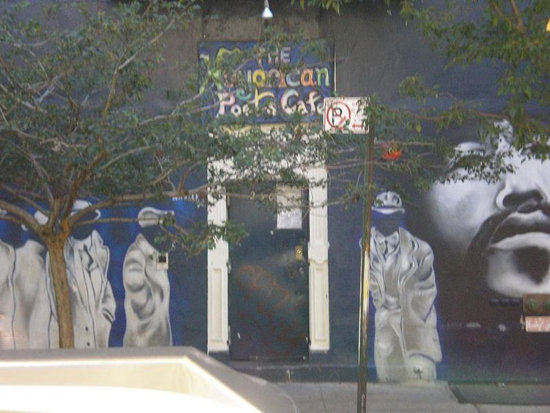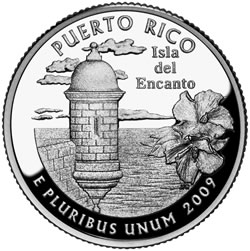The Utuado Uprising, also known as the Utuado Revolt or El Grito de Utuado, refers to the revolt against the United States government in Puerto Rico which occurred on October 30, 1950 in various localities in Puerto Rico and which in Utuado culminated in the “Utuado massacre”.
Events leading to the revolt
On September 17, 1922, the Puerto Rican Nationalist Party was formed. Jose Coll y Cuchi, a former member of the Union Party, was elected its first president. He wanted radical changes within the economy and social welfare programs of Puerto Rico. In 1924, Pedro Albizu Campos, a lawyer who once served in the U.S. Army during World War I as a Second Lieutenant, joined the party and was named its vice president. He believed that Puerto Rico should be an independent nation even if it meant an armed confrontation. By 1930, Coll and Cuchi departed from the party because of his disagreements with Albizu Campos as to how the party should be run. On May 11, 1930, Albizu Campos was elected president of the Nationalist Party.
In the 1930’s, the United States-appointed governor of Puerto Rico, Blanton Winship, and police colonel Riggs applied harsh repressive measures against the Nationalist Party. In 1936, Albizu Campos and the leaders of the party were arrested and jailed at the Princesa Jail in San Juan and later sent to the Federal Prison at Atlanta, Georgia. On March 21, 1937, the nationalists held a parade in Ponce and the police opened fire on the crowd in what was to become known as the Ponce Massacre. Albizu Campos returned to Puerto Rico on December 15, 1947 after spending 10 years in prison.
On June 11, 1948, the United States appointed Governor of Puerto Rico, Jesus T. Pinero, signed the infamous “Ley de la Mordaza” (Gag Law) or Law 53 as it was officially known, passed by the Puerto Rican legislature which made it illegal to display the Puerto Rican Flag, sing a patriotic song, talk of independence and to fight for the liberation of the island. It resembled the anti-communist Smith Law passed in the United States. On June 21, 1948, Albizu Campos gave a speech in the town of Manati where nationalists from all over the island, including Utuado and Jayuya were gathered in case there was an attempt by the police to arrest him.
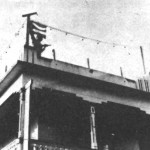 From 1949 to 1950, the nationalists in the island began to plan and prepare an armed revolution hoping that the United Nations would take notice and intervene on their behalf. The revolution was to take place in 1952, on the date the United States Congress was to approve the creation of the political status Free Associated State (“Estado Libre Associado”) for Puerto Rico. The reason behind Albizu Campos’ call for an armed revolution was that he considered the “new” status a colonial farce.
From 1949 to 1950, the nationalists in the island began to plan and prepare an armed revolution hoping that the United Nations would take notice and intervene on their behalf. The revolution was to take place in 1952, on the date the United States Congress was to approve the creation of the political status Free Associated State (“Estado Libre Associado”) for Puerto Rico. The reason behind Albizu Campos’ call for an armed revolution was that he considered the “new” status a colonial farce.
On October 26, 1950, Albizu Campos was holding a meeting in Fajardo when he received word that his house in San Juan was surrounded by police waiting to arrest him. He was also told that the police had already arrested other nationalist leaders. He escaped from Fajardo and ordered the revolution to start. On October 27, the police in the town of Peñuelas, intercepted and fired upon a caravan of nationalists, killing four. On October 30, the nationalists staged uprisings in the towns of Ponce, Mayagüez, Naranjito, Arecibo, San Juan (The Nationalist attack of San Juan), Jayuya (known as the Jayuya Uprising) and Utuado. The first battle of the nationalist uprisings occurred during the early hours of the day of October 29th, in the bario Macana of town of Peñuelas. The police surrounded the house of the mother of Meliton Muñiz the president of the Peñuelas Nationalist Party, under the pretext that he was storing weapons for the Nationalist Revolt. Without warning, the police fired upon the nationlists and a firefight between both factions ensued, which resulted with the death of two nationalists and six police officers wounded.
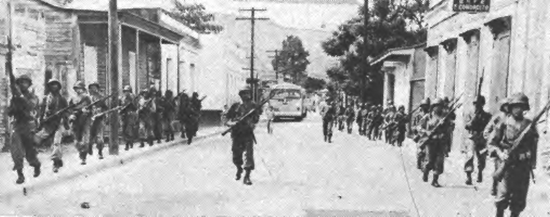
Troops_in_Jayuya. The National Guard, commanded by the Puerto Rico Adjutant General Major General Luis R. Esteves and under the orders of Gov. Luis Muñoz Marín, occupy Jayuya
The United States declared martial law in Puerto Rico and sent the Puerto Rico National Guard to attack the various towns involved in the nationalist uprisings. In the case of Jayuya, the town was attacked by air by U.S. bomber planes and on land by artillery.
The nationalist leaders in Utuado were Heriberto Castro and Damian Torres. According to the plans of Albizu Campos, the nationalists were to put up an armed resistance in their respective towns and then retreat to Utuado. Once in Utuado, the nationalists were to continue fighting against the Armed Forces of the United States, until the United Nations Security Council took notice and intervened in their favor. This however, did not happen because the uprisings were soon crushed.
In Utaudo a group of 32 nationalists fought against the local police. The group which was reduced to 12 men, retreated to the house of Damian Torres. Torres’ residence was attacked by 50 caliber machine gun fire from four American P-47 Thunderbolt planes. The National Guard arrived later that day and ordered the nine men who survived the attack to surrender. Once the nationalists surrendered they were forced to march down Dr. Cueto Street to the local town plaza where their shoes, belts and personal belongings were removed. The group was then taken behind the police station and where, without a trial, they were machined gunned. Four of the nationalists died, they were nationalist leader Heriberto Castro, Julio Colon Feliciano, Agusti n Quiñones Mercado, Antonio Ramos and Antonio Gonzalez. Gonzalez, who was 17 years old, pleaded for water and instead was bayoneted to death. The five survivors were seriously wounded in what became known as “La Massacre de Utuado” (The Utuado Massacre).
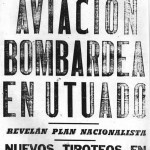
This is a picture of a copy of the November 1, 1950 edition of the newspaper “El Imparcial” of Puerto Rico whose headline states that the Puerto Rican City of Utuado was bombed by the US Air Forces during the historic Nationalists revolts of Oct. 30, 1950.
United States law mandated that U.S. President Harry Truman take direct charge in all matters concerning Puerto Rico. In addition, the Governor of Puerto Rico, Luis Muñoz Marin was required to consult directly with the White House. News of this military action however, was prevented from spreading outside of Puerto Rico. It was called an incident between Puerto Ricans.
The top leaders of the nationalist party were arrested, including Albizu Campos and the leader of the Jayuya Uprising Blanca Canales, and sent to jail to serve long prison terms. On November 1, 1950, nationalists Griselio Torresola and Oscar Collazo attacked the Blair House with the intention of assassinating U.S. President Truman. Torresola and White House police officer Leslie Coffelt lost their lives in the failed attempt. Collazo was arrested and sentenced to death. His sentence was later commuted to life imprisonment by President Truman, and he eventually received a presidential pardon.
The last major attempt by the Puerto Rican Nationlist Party to draw world attention to Puerto Rico’s colonial situation occurred on March 1, 1954, when nationalist leader Lolita Lebron together with fellow nationalists Rafael Cancel Miranda, Irving Flores and Andres Figueroa Cordero attacked the United States House of Representatives. Lebron and her comrades were charged with attempted murder and other crimes. Gilberto Martinez, one of the last survivors of the Utuado massacre, died on January 1, 2009.
From Wikipedia, the free encyclopedia

